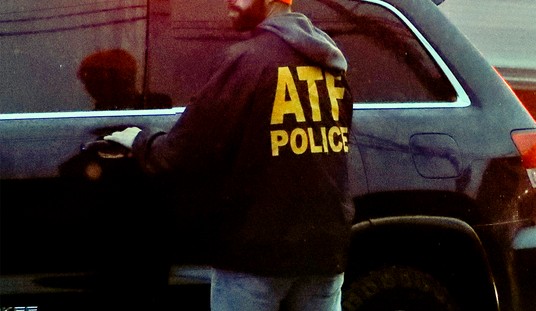Any time a young person dies, it’s horrible, especially when it’s someone who had so much to live for, with so much potential.
It’s even more tragic when the death is the result of a monster who couldn’t take no for an answer.
In Utah, a college student named Lauren McCluskey was murdered. Her ex-boyfriend was charged with the crime. He was reportedly abusive and had lied about his past, including his status as a sex offender.
He was allegedly enraged over the breakup and ended up killing the young woman.
In reporting on the case, which is a tragic and horrific event, Think Progress almost stumbles onto a harsh truth about violence in this country.
Women who are in abusive relationships, or relationships they fear will become abusive, are often told to reach out for help to prevent things from progressing further. Lauren McCluskey, a track athlete at the University of Utah who was murdered by her ex-boyfriend on October 22, 2018, did just that.
She alerted the campus police. She showed them threatening text messages from her ex, told them about his criminal record, which she found out about a month into their relationship.
Recent reports by the University of Utah Department of Public Safety and the Utah Department of Public Safety, along with publicly released 911 calls, reveal that McCluskey expressed concerns to police officers six times in the 10 days before she died. None of it mattered. She was left to fend for herself.
The cries for help actually began on September 30, when two of her friends reported their concerns over McCluskey’s relationship and safety to the Resident Adviser at their dorm. The following day, an official report was filed to the housing officials, but after a brief review, they decided “not to ‘overstep’ in assistance to Lauren unless she was seeking support.”
On October 10, a day after McCluskey broke up with Melvin Rowland after finding out the 37-year-old sex offender had been lying about his age and criminal background, McCluskey’s parents called campus police. Rowland was supposed to return McCluskey’s car, and they were worried he would hurt McCluskey when he did. Campus police did end up escorting McCluskey to the car exchange, which went off without any acts of violence.
But two days later, McCluskey herself started reaching out for help. On October 12, she called campus police for the first time, about disturbing text messages she was receiving from Rowland’s friends, but campus police said they did not rise to the level of harassment. The following day, October 13, she called campus police again, this time with concrete proof of extortion — text messages presumably from Rowland and his friends that threatened to post private pictures of her online if she didn’t pay them money. The campus police said it would take time to review the materials.
Again, this is awful. I don’t want to even try and imagine what this must have been like.
But there’s something here that we all need to pay attention to; something Think Progress and the other liberal publications reporting on this aspect of the story need to bear in mind. The courts have found time and time again that the police have no duty to protect you. The most recent example was the courts finding that with regard to the students at Marjory Stoneman Douglas High School.
If high school students aren’t going to be protected by a deputy assigned to that school, at least in part to protect them, what hope does anyone else have?
Lauren McCluskey went to the authorities to get help, to get protection from a bad man threatening to do bad things.
She still ended up dead.
Folks, this is the start of a new year. Do yourself a favor. Make one of your New Year’s Resolutions to be serious about protecting you and yours. The police won’t do it, either because they can’t or because they just won’t. It’s on you. It’s always been on you.
Take. It. Seriously.








Join the conversation as a VIP Member